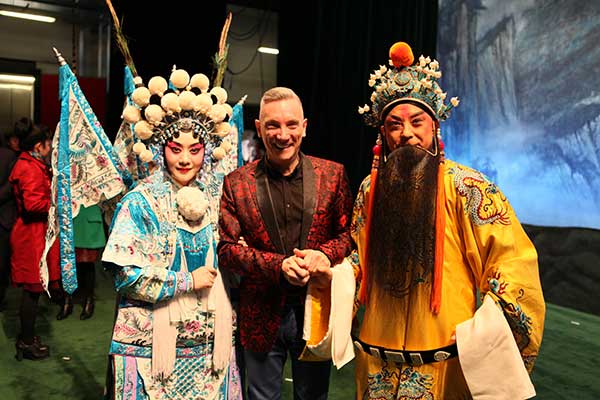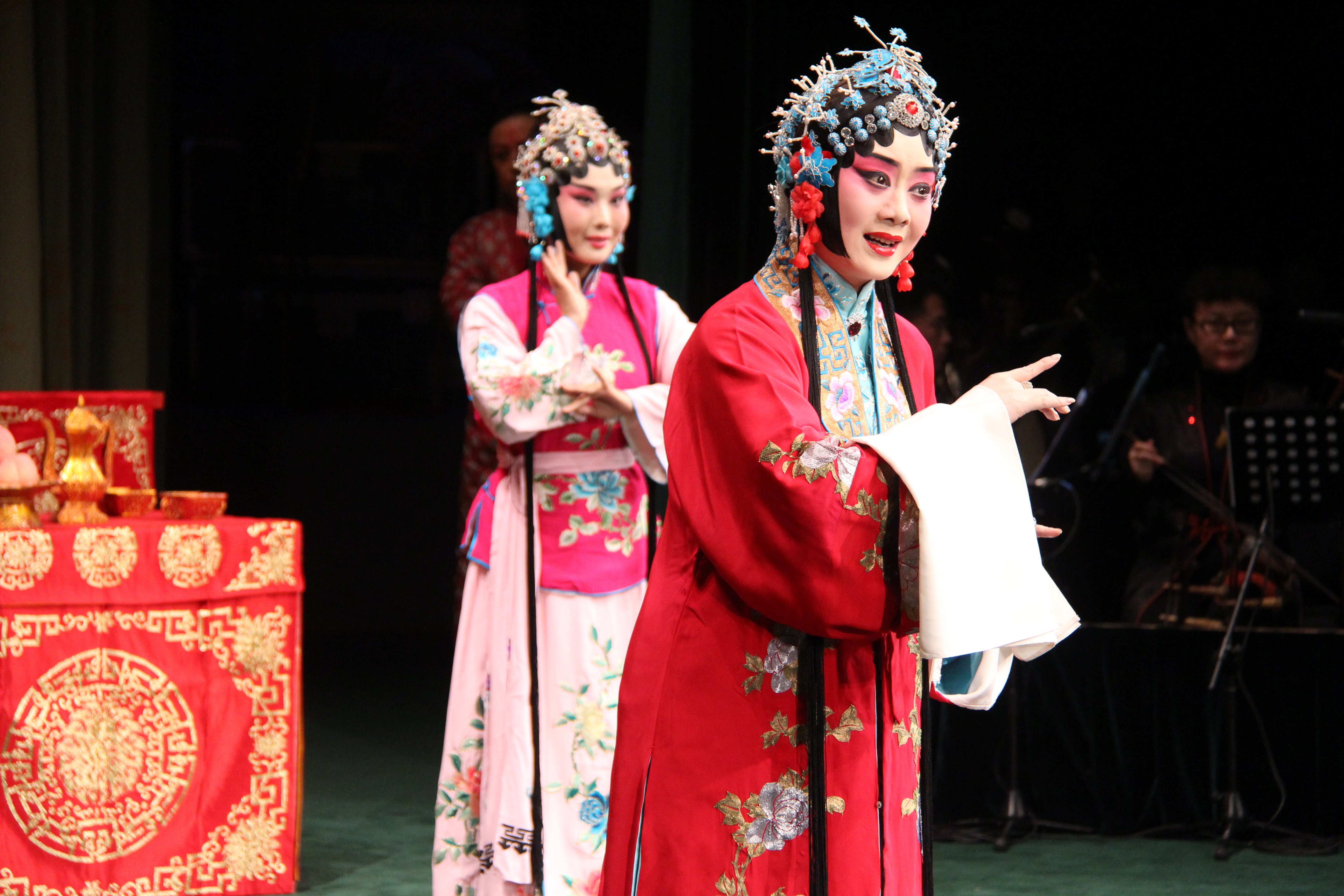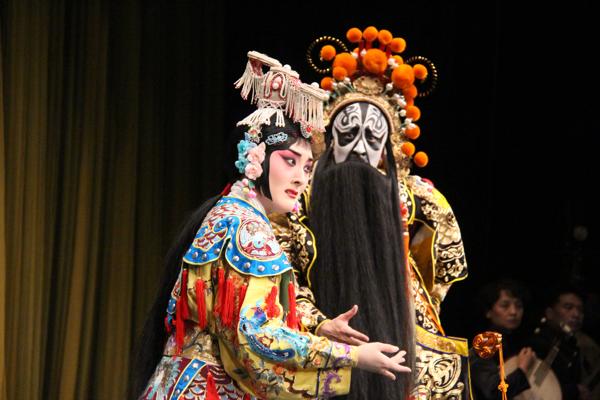
Liverpool City Councilor Gary Millar (center) takes a photo with leading performers Li Shengsu (left) and Yu Kuizhi of The Warrior Women of Yang in Liverpool on Nov 13. [Photo/China Daily]
With star performers, lavish costumes, elaborate makeup and quick acrobatics, the Peking opera brought two of its masterpieces to Britain for the first time in a decade.
Peking opera, known as Jingju in Chinese, is a traditional theater form of China that dates back to the 18th century.
Members of the opera’s troupe combine vocal narrations with music, acrobatics, acting, martial arts and dance.
The shows began in Liverpool on Nov 11 and traveled to London subsequently before closing on Nov 22.

[Photo/China Daily]
During the period, the China National Peking opera Company presented two operas:
Farewell My Concubine, which is the tale of a king’s concubine who kills herself rather than be captured by enemy forces, and The Warrior Women of Yang, a story of courage, patriotism and family loyalty of women in ancient China.
Both plays are Chinese classics.
“The storylines have many ups and downs, giving audiences a chance to view Peking opera’s grand momentum,” says Sun Guiyuan, the national director of the theater company.
“The two plays reveal the performing styles and the best of martial arts in this art form.”
The Warrior Women of Yang has a cast of more than 50 members performing combat acts and acrobatics. That apart, audiences are able to clearly understand how different scenes play out and the feelings the characters have for their country.
In Farewell My Concubine, the main role belongs to Xiang Yu, a general from ancient China who was loved by his people even though he had been defeated in war.

[Photo/China Daily]
“This play represents a tragedy ... involving a hero and a beauty, it is also a matter of life and death,” Sun says.
The troupe of more than 60 singers, actors and actresses and musicians made several changes to the usual script, such as the duration, for Western audiences.
“Peking opera usually takes three hours which is long by standards of Western drama. So we changed it to two and half, including a break in between. We also omitted some scenes to make the script tighter,” Sun says.
Veteran performer Yu Kuizhi, who plays the lead role in both plays, says: “As Peking opera is unfamiliar to British audiences, we exaggerate our moves and gestures to help audiences understand the content.”
Peking opera’s Farewell My Concubine was welcomed in Liverpool and the Merseysider magazine gave it five stars, calling it “one of the most significant cultural events” in many years.
“This mix of death-defying acrobatics and ancient Chinese tradition is a breath of fresh air ... a must see,” Jeffery Taylor, a commenter, says in the local media.
Li Shengsu, a veteran actress of the traditional Chinese theater form, says they would be “happy to introduce” the shows on a BBC program to let more British audiences understand the Peking opera.
The British tour is being organized by Zhang Kewei, the president of Sinolink, a London-based company which seeks to take Chinese art and culture to the world.
“I watched the performance of China National Peking opera Company in London 10 years ago. It left a very strong impression on me. So, I’ve always waited for its return,” Zhang says.
His company has been working on getting the plays to Britain as commercial shows for the past year.
This year is also being officially marked as special for China-United Kingdom exchanges.
